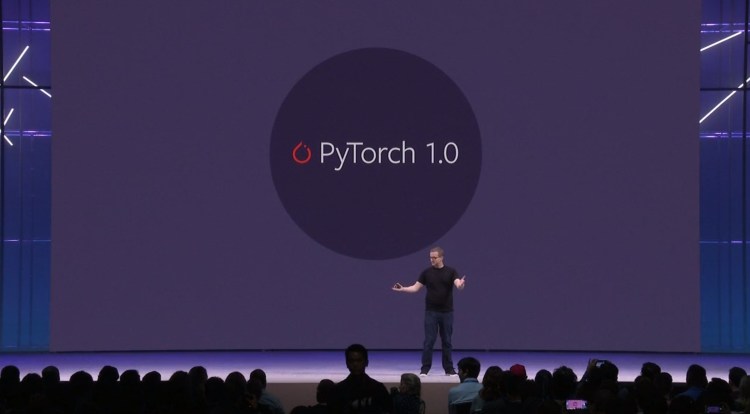Watch all the Transform 2020 sessions on-demand here.
Facebook today announced the release of deep learning framework PyTorch 1.0 in developer preview, which includes a series of tools and integrations to make it more compatible with popular services from Google Cloud, Amazon Web Services, and Microsoft’s Azure Machine Learning.
Arm, Nvidia, Qualcomm, and Intel are also adding PyTorch support for things like kernel library integrations and tools to track inference runtime.
PyTorch was released to the public in January 2017 and has been downloaded more than 1 million times.
PyTorch 1.0 was first announced in May at the F8 developer conference, and includes deeper integration with Facebook’s Caffe2 and ONNX.
June 5th: The AI Audit in NYC
Join us next week in NYC to engage with top executive leaders, delving into strategies for auditing AI models to ensure fairness, optimal performance, and ethical compliance across diverse organizations. Secure your attendance for this exclusive invite-only event.
Back in May, Facebook VP Bill Jia and CTO Mike Schroepfer promised PyTorch 1.0 would launch with new pretrained models, tools, and libraries to give developers more flexibility and options.
To meet those needs, Google Cloud will introduce PyTorch support for a number of its services. Google and Facebook are also working together to make tensor processing units (TPU) for PyTorch users, Facebook said in a blog post today announcing the news. Google Cloud Platform’s Deep Learning VM service for preconfigured AI will also include a VM image for PyTorch 1.0.
Amazon’s SageMaker will provide PyTorch users with preconfigured environments for things like automated model tuning.
Microsoft, which first partnered with Facebook a year ago on the development of the ONNX open source framework to make AI models created with different frameworks more portable, will also introduce several new resources for developers using PyTorch.
“Azure Machine Learning service now allows developers to seamlessly move from training PyTorch models on a local machine to scaling out on the Azure cloud. For data science experimentation, Microsoft is offering preconfigured Data Science Virtual Machines (DSVM) that are preinstalled with PyTorch. For developers looking to start exploring PyTorch without having to install software and set up a local machine, Azure Notebooks provides a free, cloud-hosted Jupyter Notebooks solution set up with PyTorch tutorials,” Facebook product manager Joe Spisak said today in the blog post.
Udacity will also introduce free online courses on how to use PyTorch, and fast.ai today released fastai 1.0, an open-source deep learning library built on top of PyTorch.
PyTorch version 1.0 rolls out in developer preview as part of the first-ever PyTorch developer conference, held today in San Francisco.


